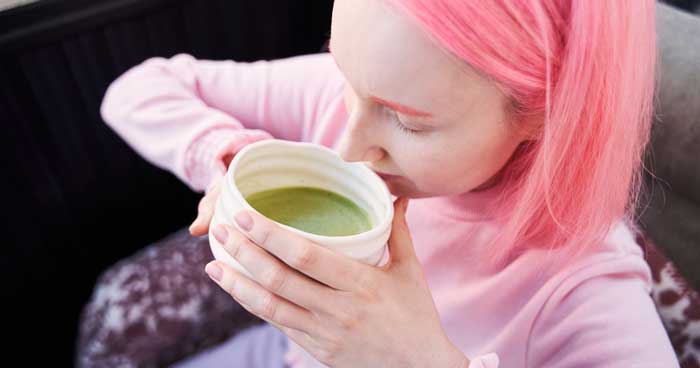Matcha tea is a special kind of green tea that has become very popular around the world, especially among people who care about staying healthy and fit. This tea comes from Japan and is made in a unique way. Instead of just steeping leaves in hot water, the whole tea leaves are ground up into a fine powder. When you drink matcha, you mix this powder with water, so you’re actually drinking the leaves themselves!
Now, you might be wondering, “Is matcha tea good for you?” It’s a good question, especially today when we all want to make sure we’re eating and drinking things that are good for our health. There’s a lot of talk about matcha and how it might help our bodies and minds, but what’s really true?
In this article, we’re going to take a close look at matcha tea. We’ll talk about where it comes from, what’s actually in it, and the ways it might be good for your health. We’ll also look at what scientists and health experts say about it. Our goal is to give you clear, detailed information so you can decide if matcha is something you want to include in your daily routine. So, let’s dive in and learn all about matcha tea and its benefits.
Matcha Origins
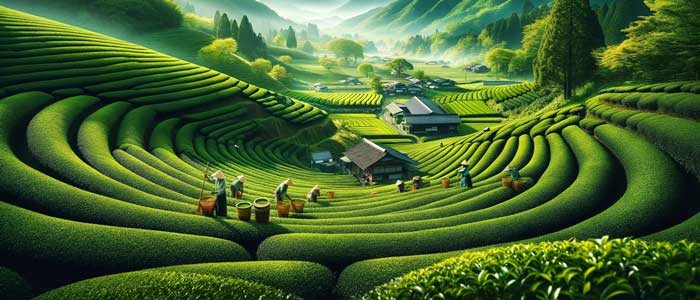
Matcha tea comes from Japan, a beautiful place with lots of tradition. This type of tea is very special and different from your regular tea because of how it’s made and where it comes from. It’s not just any tea; it’s a part of Japanese culture and has a rich history.
Matcha is grown in the shade, which is unusual for plants. Farmers cover the tea plants with a special kind of shade cloth before they pick the leaves. This makes the leaves grow slower and gives them a brighter green color. This method also increases certain good stuff in the leaves, like chlorophyll, which is what makes plants green, and L-theanine, an amino acid that can make you feel relaxed and alert at the same time.
After the leaves are picked, they are dried and then ground into a very fine powder. This powder is what we call matcha. Unlike other teas, when you make matcha, you’re actually drinking the whole leaf, just ground up. This is why it’s believed to be more powerful and have more health benefits than other types of tea.
In Japan, matcha isn’t just a drink. It’s part of a special tea ceremony that’s all about respect, purity, and calmness. This ceremony has been a part of Japanese culture for hundreds of years and is still practiced today. It’s about taking a moment to relax and enjoy the simple, quiet moments in life.
So, when you drink matcha, you’re not just having a cup of tea. You’re experiencing a piece of Japanese tradition and history. It’s like a small ceremony you can have any time of the day, taking a moment for yourself and enjoying every sip.
Why Matcha Tea Is Good For You
Matcha tea is not just tasty; it’s also packed with health benefits that can really make a difference in how you feel every day. Let’s go through some of these benefits and see what research says about them.
Firstly, matcha is known for making your mind clearer. This means it can help you focus better and stay alert. This is thanks to an amino acid called L-theanine, which is found in high levels in matcha. Studies have shown that L-theanine can help you feel more relaxed without feeling sleepy, making matcha a great choice if you need to concentrate on work or studies.
Matcha can also give your metabolism a boost. This means it helps your body use energy better and can even help with losing weight. This is partly because of the caffeine in matcha, but also because of other natural compounds in the tea leaves. Research suggests that people who drink matcha can burn more calories during the day, which is great news if you’re trying to stay fit.
But that’s not all. Matcha is really good for your heart too. Drinking matcha can lower your risk of heart disease by keeping your arteries healthy and lowering bad cholesterol levels. This has been shown in several studies where people who drink green tea, like matcha, have fewer heart problems.
All of these benefits come from the special way matcha is made and how it’s full of antioxidants, which are like your body’s best friends in fighting off sickness and keeping you healthy. These antioxidants can protect your cells from damage and even help lower your risk of some serious diseases like cancer.
So, is matcha tea good for you? Based on what the research says, it looks like a big yes. The research: The therapeutic potential of matcha tea: A critical review on human and animal studies
Drinking matcha can help your mind, your body’s energy, and your heart, making it a great choice for a healthy drink. But remember, having a balanced diet and living a healthy lifestyle is important too. Matcha can be a part of this healthy lifestyle, giving you a little extra boost in the right direction.
How Matcha Tea Is Good For You
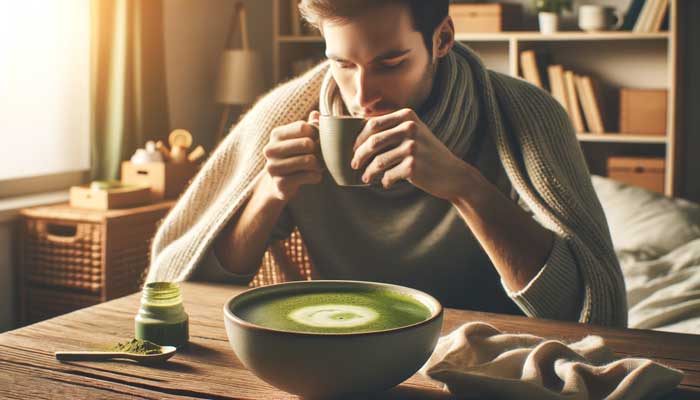
Matcha is not just your ordinary green tea; it’s like the superhero in the tea world. This vibrant green powder is packed with mighty health warriors called polyphenols and catechins. These aren’t just any compounds; think of them as the secret agents of health hidden in every leaf, ready to jump into action and defend your body.
Now, imagine these health-boosting heroes in every sip you take, battling inflammation and keeping your body in its best form. But here’s where matcha stands out from other green teas: when you drink matcha, you’re not just sipping on an infusion; you’re consuming the entire leaf in powdered form. This means you’re getting an extra-strong dose of these incredible molecules.
One of the standout heroes in matcha is EGCG (epigallocatechin gallate), a type of catechin with superhero qualities. It’s like having a personal bodyguard inside your cup, fighting off bad cells and keeping you healthy. Found abundantly in both green tea and matcha, EGCG acts as a health crusader, patrolling your body and protecting your cells from damage.
What sets matcha apart, and what makes it so valuable, is its bioavailability. Because you’re consuming the whole leaf, your body receives a supercharged serving of catechins, especially EGCG, making matcha a potent ally in your health arsenal. Every time you whisk up some matcha, you’re not just making a drink; you’re enlisting a powerful protector to keep you healthy and strong.
In comparison to other types of green tea and health beverages, matcha provides a more direct and concentrated source of nutrients because you consume the whole leaf, not just the brewed water. This means that the body can absorb and utilize these nutrients more effectively than it can from steeped teas, where the leaves are discarded. The unique process of shading, harvesting, and finely grinding the leaves for matcha production ensures that its nutritional content is preserved and concentrated, offering more value in terms of health benefits per serving.
How To Buy Good Matcha Tea

When talking about matcha, it’s important to understand how to tell if you’re getting the good stuff. High-quality matcha powder should be bright green. This color comes from the special way the tea plants are grown. They’re shaded before being harvested, which helps increase the amount of chlorophyll, making the leaves a vibrant green.
Now, there are some tricks to watch out for. Some companies might try to fool you by adding stuff to make the matcha seem better than it is. But real, high-quality matcha doesn’t need any extras. It’s all about the pure, rich taste and the smooth texture that comes from the finely ground tea leaves.
To make sure you’re getting real matcha, look at where it comes from and how it’s made. The best matcha usually comes from Japan, from places like Uji, Kagoshima, and Shizuoka. The process should be traditional, where the tea leaves are slowly ground into a fine powder. This keeps all the goodness in.
Also, real matcha should be safe to drink. It should be tested for any bad stuff, like chemicals or radiation, to make sure it’s safe and healthy. Good brands will show you the results of these tests, so you know you’re drinking something that’s not just delicious but also good for you.
So, when you’re choosing matcha, go for the real deal: bright green, finely ground, from a good place, and safe to drink. That way, you can enjoy all the benefits of matcha without worrying about any nasties.
The Deep Roots and Science Behind Matcha: Trusting Tradition and Research
When we talk about matcha, we’re diving into a world full of rich history, tradition, and science. So, it’s important to trust the right sources. Matcha isn’t just a trendy drink; it’s a tradition that has been part of Japanese culture for centuries. The tea masters, with their deep understanding and respect for this tradition, play a crucial role in maintaining the authenticity and quality of matcha.
Tea masters, like the ones mentioned in “The Book Of Tea,” are not just experts in brewing tea; they are custodians of its history and art. They understand the nuances of matcha, from the way it’s grown to the precise method of preparation that brings out its best flavor and health benefits. These experts have dedicated their lives to studying and perfecting the art of tea, making them a credible source of information and guidance in the complex world of matcha.
Moreover, the benefits of matcha are not just tales passed down through generations. They are supported by scientific research. Studies on matcha and green tea have shown potential health benefits, such as improved mental clarity, increased metabolism, and enhanced heart health. These studies give a scientific backing to what tea masters have known for centuries.
When considering matcha’s health benefits, it’s also wise to listen to nutritionists. They can provide insights into how matcha can fit into a balanced diet and offer advice based on the latest health research. Combining the traditional knowledge of tea masters with the scientific understanding of nutritionists offers a comprehensive view of matcha’s place in a healthy lifestyle.
Remember, when exploring the world of matcha, look for information from reputable sources, such as established tea masters, credible research studies, and experienced nutritionists. This approach ensures that the information is not only trustworthy but also respects the deep cultural heritage and scientific background of matcha.
Is Matcha Tea Good For You? Answered by real people.
Let’s talk about people’s real-life stories with matcha. These are not just tales but actual experiences from individuals who’ve seen a change in their health and life by adding matcha to their daily routine.
Here’s Elara after doing a 30-day matcha challenege:
I think I feel a change in my hormone levels, and one of the ways I’ve noticed that physically is a change in my overall body shape. I used to keep a lot of water weight and experience bloating in my abdomen, but since drinking matcha regularly, I feel like I have more of an hourglass figure and a slimmer waistline.
Elara Hadjipateras from Matcha
One person shared how matcha helped them with their afternoon energy slumps. Before matcha, they used to reach for coffee or sugary snacks when they felt tired in the middle of the day. But after switching to matcha, they noticed a smoother, more stable energy boost without the jitteriness or crash they got from coffee. They said, “Matcha gave me a gentle lift in my energy and mood, and it lasted longer than I expected. I didn’t feel shaky or anxious like I sometimes did with too much coffee.”
Another case involves someone who struggled with focus and concentration, especially during long hours of work. They started drinking matcha in the morning and found it improved their concentration and productivity. “With matcha, it’s like my brain fog clears up, and I can focus better on my tasks. I also love the ritual of preparing it; it sets a positive tone for my day,” they mentioned.
Then there’s a story from a person who was looking to improve their overall health. After incorporating matcha into their diet, along with other healthy habits, they noticed improvements in their skin, weight, and energy levels. They explained, “I started drinking matcha as part of a healthier lifestyle, and I’ve seen so many benefits. My skin looks clearer, I’ve lost some weight, and I feel more energetic throughout the day.”
Now from a minimalist Japanese Youtuber who experimented on himself for 30 days to see the effects of drinking matcha daily:
And this habit of drinking matcha everyday seem to make my life happier.
Samurai Matcha
These stories show that matcha can be more than just a drink; it can be a part of a healthier, more focused, and energetic life. While everyone’s experience with matcha can be different, these anecdotes illustrate the potential benefits that come from adding this green tea to one’s diet. Remember, it’s always good to listen to your body and consult with a healthcare professional, especially if you’re making significant changes to your diet or lifestyle.
Get the real matcha full of nutrients stored in a chiller for long-lasting freshness:
-
 Ujiha Koku Ceremonial Grade Matcha 50gPrice range: $59.99 through $69.99
Ujiha Koku Ceremonial Grade Matcha 50gPrice range: $59.99 through $69.99 -
 Ujiha Tsuyu Organic Ceremonial Grade Matcha 50g$66.99
Ujiha Tsuyu Organic Ceremonial Grade Matcha 50g$66.99 -
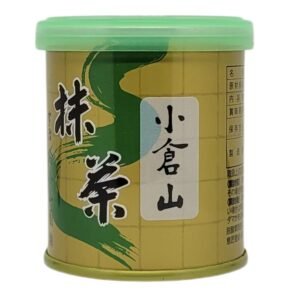 Yamamasa Koyamaen Ogurayama 30g$54.99
Yamamasa Koyamaen Ogurayama 30g$54.99 -
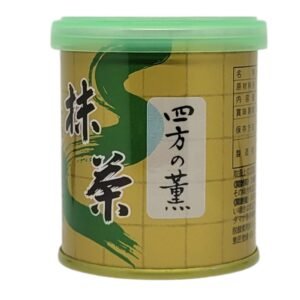 Yamamasa Koyamaen Yomonokaori 30g$52.99
Yamamasa Koyamaen Yomonokaori 30g$52.99 -
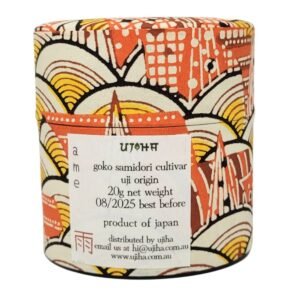 Ujiha Ame Supreme Ceremonial Grade Matcha 2024 First HarvestPrice range: $39.99 through $54.99
Ujiha Ame Supreme Ceremonial Grade Matcha 2024 First HarvestPrice range: $39.99 through $54.99 -
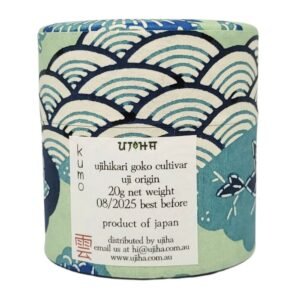 Ujiha Kumo Super Supreme Ceremonial Grade Matcha First Harvest 2024Price range: $49.99 through $64.99
Ujiha Kumo Super Supreme Ceremonial Grade Matcha First Harvest 2024Price range: $49.99 through $64.99 -
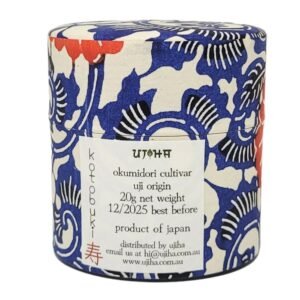 Ujiha Kotobuki Supreme Organic Ceremonial Grade MatchaPrice range: $39.99 through $54.99
Ujiha Kotobuki Supreme Organic Ceremonial Grade MatchaPrice range: $39.99 through $54.99 -
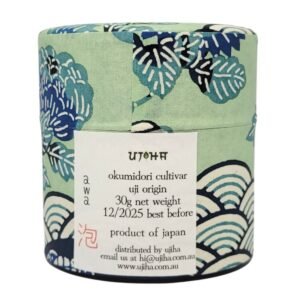 Ujiha Awa Premium Organic Ceremonial Grade Matcha 2024 First HarvestPrice range: $44.99 through $59.99
Ujiha Awa Premium Organic Ceremonial Grade Matcha 2024 First HarvestPrice range: $44.99 through $59.99 -
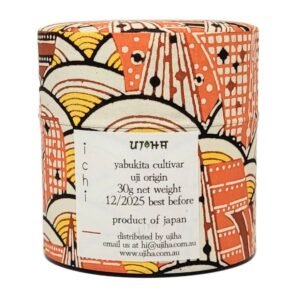 Premium Ceremonial Grade Matcha Ichi 40g First Harvest 2025Price range: $39.99 through $54.99
Premium Ceremonial Grade Matcha Ichi 40g First Harvest 2025Price range: $39.99 through $54.99
How To Include Matcha Into Your Daily Life
Let’s look at some simple and fun ways to add matcha to your daily life. Remember, enjoying matcha isn’t just about drinking a cup of tea; it’s about finding new and exciting ways to include this healthy green powder in your routine.
Firstly, starting your day with a cup of matcha can be a great way to wake up and feel energized. Instead of your usual coffee or regular tea, try making a matcha latte. Just mix a teaspoon of matcha powder with a little hot water to make a paste, then add warm milk (dairy or plant-based) and a bit of honey or sugar if you like it sweet. This can be a comforting and energizing start to your day.
If you’re always on the go, you can add matcha to your morning smoothie. Blend a teaspoon of matcha with your favorite fruits, such as bananas or berries, add some yogurt or almond milk, and maybe a handful of spinach for an extra health kick. This makes a refreshing and nutritious breakfast that’s easy to take with you.
For snacks, why not try baking with matcha? You can add matcha powder to your recipes for muffins, cookies, or pancakes. This not only gives your snacks a lovely green color and unique flavor but also boosts their health benefits. Just replace a part of the flour in your recipe with matcha powder and follow the rest of the steps as usual.
And let’s not forget about relaxation time. In the afternoon or evening, instead of reaching for a sugary drink, make yourself a soothing cup of matcha tea. Just whisk a half teaspoon of matcha with hot water until it’s frothy, and then sit back and enjoy the calm it brings. This can be a lovely way to unwind and take a moment for yourself.
These are just a few ideas to get you started with matcha. Feel free to get creative and find your own favorite ways to enjoy it. Whether it’s in drinks, food, or just a simple cup of tea, matcha can be a delicious and healthy addition to your day.
Conclusion
We’ve talked a lot about matcha and how it might be good for you. Remember, matcha is a special green tea that’s full of antioxidants – those are the good things that help protect your body from harm. It can give you more energy, help you stay focused, and might even be good for your heart and help you stay at a healthy weight.
Matcha is different from other teas because you drink the whole leaf as a powder, which means you get more of the good stuff in each cup. Plus, it’s part of a long tradition from Japan, where people have enjoyed it for hundreds of years.
If you’re thinking about adding something new to your daily routine to help you feel better, matcha might be worth a try. It’s not just a drink; it’s like a healthy boost in a cup. Plus, it’s fun to make and can be part of your quiet time or a moment to relax.
So, why not give matcha a try? Look up some recipes, or just start with a simple cup of matcha tea. There’s a whole world of matcha out there to explore. Whether you’re new to matcha or already a fan, there’s always something new to learn and enjoy. Who knows? Matcha could be your new favorite thing!
Additional Resources
If you’re interested in finding out more about matcha and how it can fit into a healthy lifestyle, there are plenty of resources out there:
- Further Reading and Studies:
- For more detailed information on the health benefits of matcha, check out Healthline’s article on matcha. It breaks down the benefits with easy explanations.
- Interested in the science? The National Institutes of Health has research articles on matcha and green tea.
- Where to Buy Matcha:
- Looking for high-quality matcha? Websites like Ujiha or Zen Wonders offer a variety of matcha powders and related products.
- Remember, look for vibrant green matcha powder to ensure its quality!
- Related Articles and Blogs:
- If you’re new to matcha and want some beginner tips, our blog has great information on matcha.
- For those interested in the broader world of tea, Tea Perspective offers articles on different types of teas and their health benefits.
Remember, exploring matcha can be a fun and tasty journey to better health. Whether you’re reading up on its benefits, shopping for the best quality, or learning new recipes, there’s a lot to discover. So, take your time, enjoy the process, and find out how matcha can fit into your life. Happy exploring!

